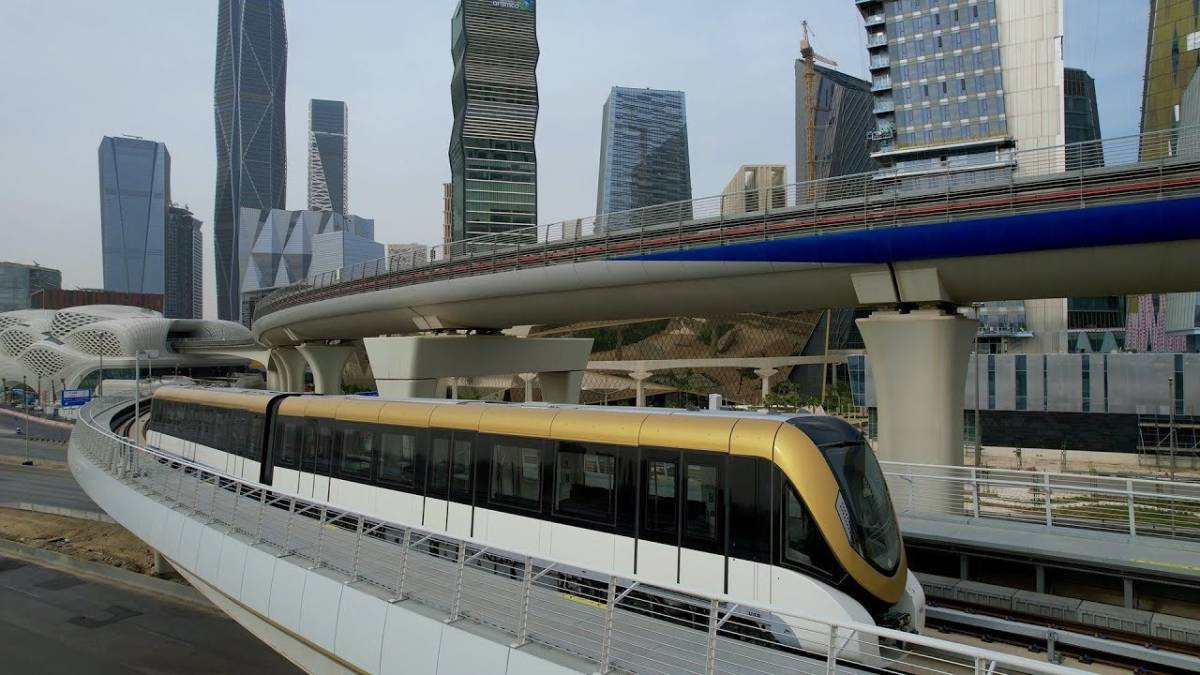Riyadh Metro: World's longest driverless network launches November 27
Saudi Arabia unveils phase one of $22.5 billion project

RIYADH: The first phase of Saudi Arabia’s Riyadh Metro, the world’s longest driverless network, is set to launch on Wednesday, November 27.
The $22.5 billion (SR84.4 billion) project is a centrepiece of the Kingdom’s Vision 2030 initiative to modernise infrastructure and enhance economic diversification.
Touted as the largest metro system built in a single phase, the Riyadh Metro underscores the government's commitment to reducing car dependency and alleviating urban congestion.
Initial launch of Riyadh Metro
The partial launch will see three of the planned six lines become operational, connecting vital city routes. These lines include:
- Al Orouba to Batha
- King Khalid International Airport Road
- Abdulrahman Bin Auf Street to Sheikh Hassan Bin Hussein Street
By mid-December, the remaining three lines will come online, covering King Abdullah Road, Al Madina, and King Abdulaziz Road, further expanding the metro's reach across the capital.
إطلاق جزئي لـ #المترو الأربعاء المقبل عبر 3 مسارات في المرحلة الأولى #الاقتصادية #مترو_الرياض
— تحديثات قطار الرياض (@_RiyadhMetro) November 22, 2024
"The metro network will cover most of the densely populated areas, public facilities, and the educational, commercial, and medical institutions," states the project's official website.
Riyadh Metro
Spanning a total of 176 kilometres, the Riyadh Metro will feature 84 stations and eventually cater for over 3 million daily passengers. Initially, the first phase will accommodate up to 1.2 million passengers daily, with additional capacity anticipated as the full network becomes operational.
Supporting the metro is an integrated transport system, including 80 bus routes passing through 2,860 stops with 842 buses, designed to meet the growing demands of Riyadh’s population, expected to surge to 15-20 million by 2030, up from 7.5 million in 2023.
Riyadh Metro is as much about sustainability as it is about connectivity. Solar panels installed at stations and depots will generate 20 per cent of the energy required for critical systems. Furthermore, energy-efficient trains equipped with regenerative braking technology aim to minimise power consumption.
The network plans to transition to renewable energy entirely, positioning the project as a benchmark for environmentally conscious urban development.
صحيفة الاقتصادية:#مترو_الرياض سينطلق في بداية عام 2025#زحمة_الرياض pic.twitter.com/VKEjl1fJuM
— تحديثات قطار الرياض (@_RiyadhMetro) October 13, 2024
Beyond modernising the transport sector, the Riyadh Metro is expected to significantly enhance the value of residential and commercial real estate in proximity to its lines. The system will connect crucial areas like King Khalid International Airport, King Abdullah Financial District, downtown Riyadh, and major universities, boosting accessibility and economic activity.
“The metro network will be connected to key urban landmarks, making commuting seamless for residents and visitors alike,” according to project details shared on social media.
Delayed, but worth the wait
First approved in 2012, the metro faced delays due to logistical hurdles and the COVID-19 pandemic. However, its launch is seen as a pivotal milestone in realising Vision 2030's ambitious urban transformation goals.
Saudi Arabia's Minister of Transport and Logistics, Saleh bin Nasser Al Jasser, earlier assured that the project had entered its "final phases" and undergone extensive testing.
Authorities are expected to announce ticket pricing and discount packages shortly. With the complete network on track for operation by mid-December, the Riyadh Metro promises to redefine public transportation standards in the region.